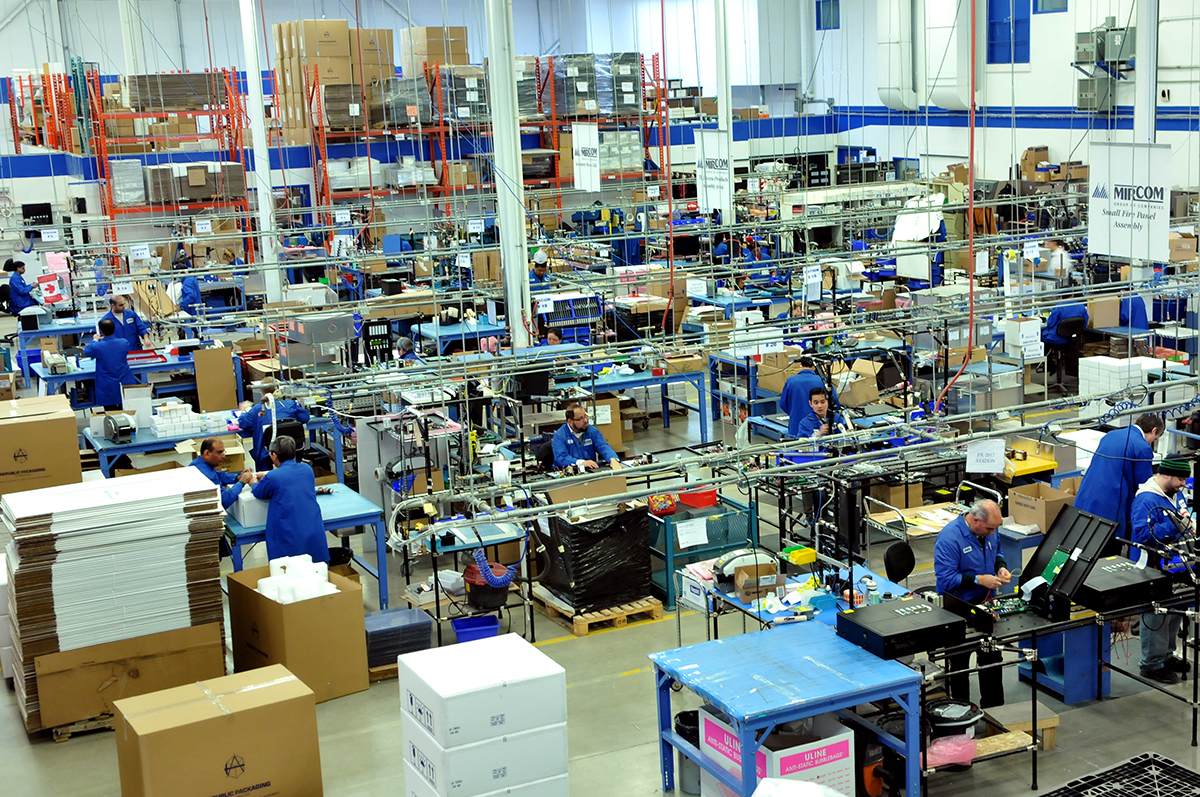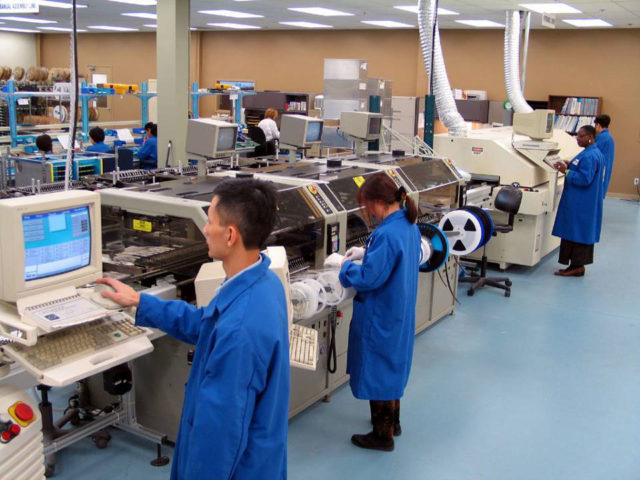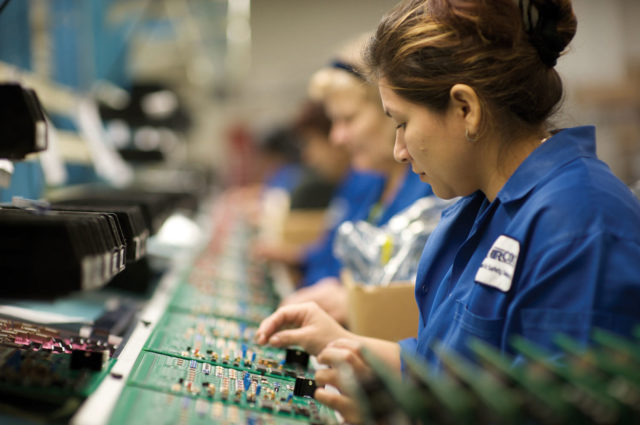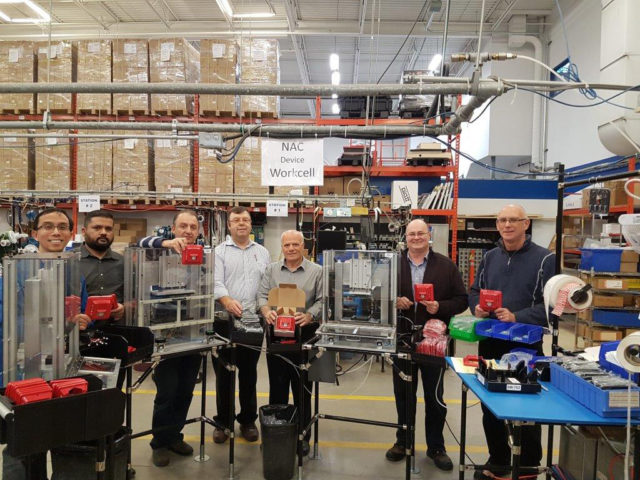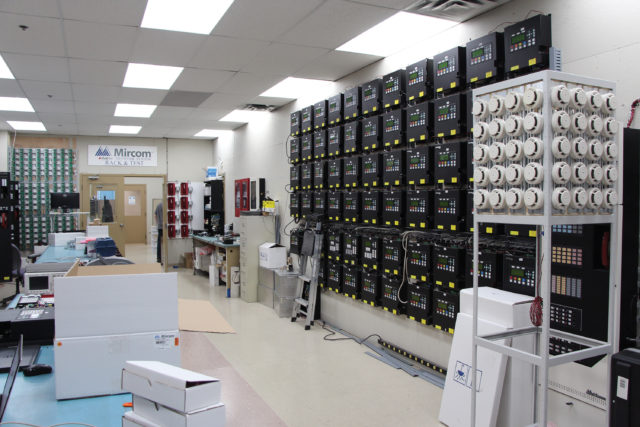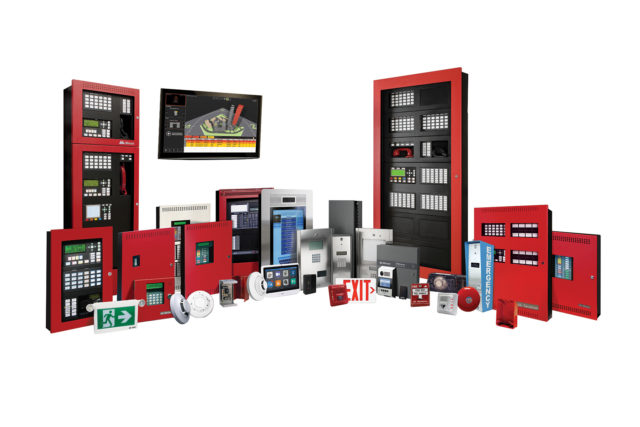-
Headquarters -
25 Interchange Way, Vaughan, ON L4K 5W3
-
Year established -
1991
-
NAICS -
334290 - Other communications equipment manufacturing
-
Major expansions -
2021
-
Employees -
600
-
Exports -
U.S., Oman, Egypt, Mexico
-
Download -
Mircom Group
Building on the past, planning for the future, while reacting to today’s challenges are keys to Mircom’s success.
Building on the past, planning for the future, while reacting to today’s challenges are keys to Mircom’s success. In President and CEO Mark Falbo’s words, “We have to be everything we have been for the last 30 years, strive to be market leaders for the next 30 years, and to have the flexibility to solve the problem that comes up 30 minutes from now”.
We have to be everything we have been for the last 30 years, strive to be market leaders for the next 30 years, and to have the flexibility to solve the problem that comes up 30 minutes from now
Located in Vaughan, Mircom is North America’s largest independent designer, manufacturer and distributor of life safety equipment. Its product lines include fire detection and alarm, communication, security and access control, mass notification, emergency lighting, building automation and smart building systems. Approximately half of its 600 employees work in the 100,000 square foot facility in Vaughan, with the rest spread across sales and service offices around the world.
Mircom’s founder, Tony Falbo, is highly regarded for his in-depth knowledge of the building solutions industry. In a video celebrating his 50th anniversary in business in 2013, his colleagues described their respect and admiration for the innovator, entrepreneur and humanitarian. Today, Tony’s three sons, Mark, Rick and Jason Falbo, run the business. The qualifications of the Falbo father and sons suggest that smart people make smart buildings. With multiple degrees in law, business and engineering between them, all earned from well-regarded institutions in Canada and abroad, the next generation of Falbos have built on their father’s vision of building safer, smarter, more liveable buildings.
As a family-owned and operated company bidding against much larger competitors, Mircom credits its ability to compete to its commitment and longevity, especially in the fire safety business. Buyers want to have the confidence that suppliers will be around beyond the sale to provide service and support to a potentially life saving product. While some firms experience frequent ownership and management changes, Mircom has been under consistent ownership for three decades and has not deviated from its focus on customer service.
In a case study posted to Mircom’s website, a Fire Safety and Emergency Management Consultant for St. Michael’s, a leading teaching and research hospital in Toronto, describes a flawless installation of their fire alarm system. The ability to communicate directly with the company who built, installed and services the system was a deciding factor in choosing Mircom. The company was also selected to design, install and support the mass notification system that protects 53,000 military personnel and their families stationed at the Fort Hood Military Base in Texas. The U.S. Department of Defence chose a family-run business to design and deliver a solution to enhance the safety and security of Fort Hood’s occupants.
The journey from Cosenza, Italy to Toronto in 1960 brought a hard working and ambitious 16 year-old Tony Falbo and his parents in search of opportunities in Canada. Tony was interested in electronics and took night courses at a local high school. This eventually led to a role at Mirtone, a company that manufactured and sold residential intercom systems. Tony rose quickly to the role of president and expanded the business to include apartment intercoms and fire detection and alarm systems in the 1970s. Mirtone became the second largest fire alarm manufacturing company in Canada and was sold to a fortune 500 company in 1988.
Mirtone’s buyer asked Tony to sign a non-compete clause that expired in 1991. This freed up Tony to found Mircom. It began as a distribution and service company and eventually took on manufacturing capability. Early in the 1990s, high interest rates and a real estate recession created challenges for the upstart Mircom.. While Tony had good relationships with the banks, the environment made it difficult for the company to rely on traditional lenders. In true entrepreneurial spirit, Tony leveraged his personal assets to raise capital and the company leveraged the federal government’s scientific research and experimental development (SRED) tax credit program to fund its ambitious product development activities.
In the early 2000s, Mark and Rick Falbo decided to leave their careers and join their father’s company, with Jason joining a few years later. The brothers worked in law, banking and other industries prior to joining Mircom, bringing a deep well of experience and personal networks to build on the foundation that Tony laid for the business.
Mircom considers its greatest differentiator to be its ability to adapt to changing customer needs. Smaller companies may be challenged to break into the market and larger ones may be less nimble. Mircom controls all aspects of a customer’s experience by designing, manufacturing, distributing, and at times even installing and providing maintenance and support services to meet the specific needs of each end user. As a vertically integrated manufacturer, Mircom can create bespoke technology solutions to quickly meet the needs of changing codes and standards in a regulated market.
Mircom controls all aspects of a customer’s experience by designing, manufacturing, distributing, and at times even installing and providing maintenance and support services to meet the specific needs of each end user.
Manufacturing takes place in Vaughan and the company is preparing to add an additional 50 per cent production capacity in Montreal. Mircom builds and distributes equipment that monitors environmental conditions such as smoke, heat, and gas; communicates status from sensors back to sophisticated control panels, and uses notification technology to bring awareness to occupants of the threat of fire or other building-related emergencies. In-house manufacturing includes automated printed circuit board assembly, metal fabrication and finished goods production on assembly lines as well as boutique work cells where small teams collaborate on more complex systems. Work cells are described as ‘factories within the factory’ where the team is responsible for end-to-end production of specialized products. The company believes that this structure leads to higher quality, increased productivity and reduced staff turnover.
Mircom has adopted a sophisticated enterprise resource planning platform that ties forecasting modules from the sales and marketing teams through to procurement, manufacturing, customer service, and field support modules that enable just in time fulfillment of customer orders. Automation is used frequently during the component or board testing processes, however, there remains a high labour component in Mircom’s production facility resulting from both high variation in product mix and specialized test requirements for life safety products; it manufactures between 2000 and 3000 different models of product to support the wide breadth of smart building systems offered.
Being in Vaughan has been beneficial to Mircom because it is an epicentre that provides access to finance, engineering, marketing, sales, customer and technical support and manufacturing talent. Diversity of the local population and their skillsets continues to be an asset. Access to the airport is also helpful; customers and suppliers like to come to Toronto, a large cosmopolitan city. Vaughan is also home to several contract manufacturers and electronic equipment distributors that can help manage spikes in demand.
Research and development is a core component of Mircom’s business. Design centres in Toronto and Montreal are home to design teams consisting of employees with diverse expertise that target new product developments which responds to customers’ and regulators’ input. Certification authorities regulate many of the design features of fire safety equipment, so Mircom’s teams innovate more frequently outside the fire domain where there is more freedom to experiment. To remain competitive, R&D efforts also include research into more affordable components that continue to meet the highest standards for quality.
Mircom is open to collaborations with partners. Internal design teams work as appropriate with other entities on specialized components or entire project designs . In 2014, Mircom partnered with the Institute for Optical Science lab at the University of Toronto and the National Research Council to perform a preliminary technology evaluation related to a high-risk LED strobe project. It leveraged the partners’ optical design expertise as well as infrastructure and test facilities, allowing Mircom to bring product to market much faster and at a lower cost than if they had done it alone. Jason Falbo suggested that, “rather than experimenting on something that is really risky and unknown, we prefer to leverage partners that can provide specialized skills and expertise to complement what we have in house to ensure our project is successful”.
Rather than experimenting on something that is really risky and unknown, we prefer to leverage partners that can provide specialized skills and expertise to complement what we have in house to ensure our project is successful
Large property owners are always looking for ways to maintain their buildings more conveniently, efficiently, and with reduced operating costs. The goal is to provide a better experience for tenants and customers. Mircom studies and monitors the smart building market to understand how connected software and hardware can gather information from the multiple building systems in aggregate fashion to build intelligence centrally that can deliver value to facility operators and owners. Current research at the company is looking at how to best utilize advances in artificial intelligence and machine learning in smart digital buildings to support smart buildings and smart cities of the future.
Remaining on the leading edge of smart building technology creates an exciting challenge for Mircom. In Jason Falbo’s words, “Our company is privately owned, but we serve the public. As a family business we do not have to cut corners to reach quarterly targets. For us, it is more important to do the job right, with public safety at the core of every decision we make. It’s our family’s name alongside the Mircom brand on each product we sell, and we feel a responsibility and accountability to deliver high quality solutions to the market as well as a high-quality work environment to our staff. ”
Our company is privately owned, but we serve the public. As a family business we do not have to cut corners to reach quarterly targets. For us, it is more important to do the job right, with public safety at the core of every decision we make. It’s our family’s name alongside the Mircom brand on each product we sell, and we feel a responsibility and accountability to deliver high quality solutions to the market as well as a high-quality work environment to our staff.
For more information about Mircom Group, visit their website.
Published: June 8, 2021
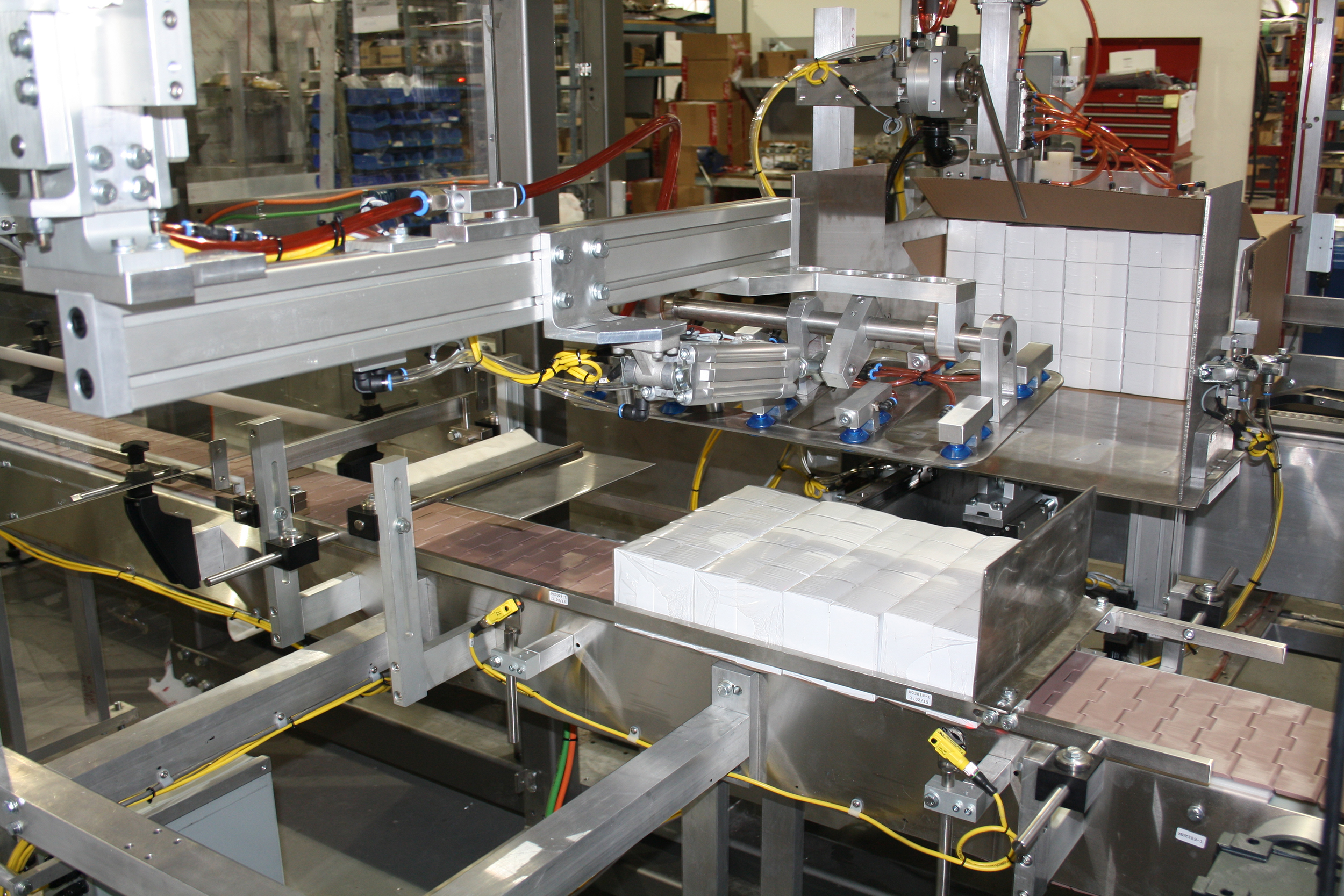
AFA Systems
Packaging machinery manufacturer AFA Systems stands out from other manufacturers because in its case, the end of the assembly line is just the beginning.
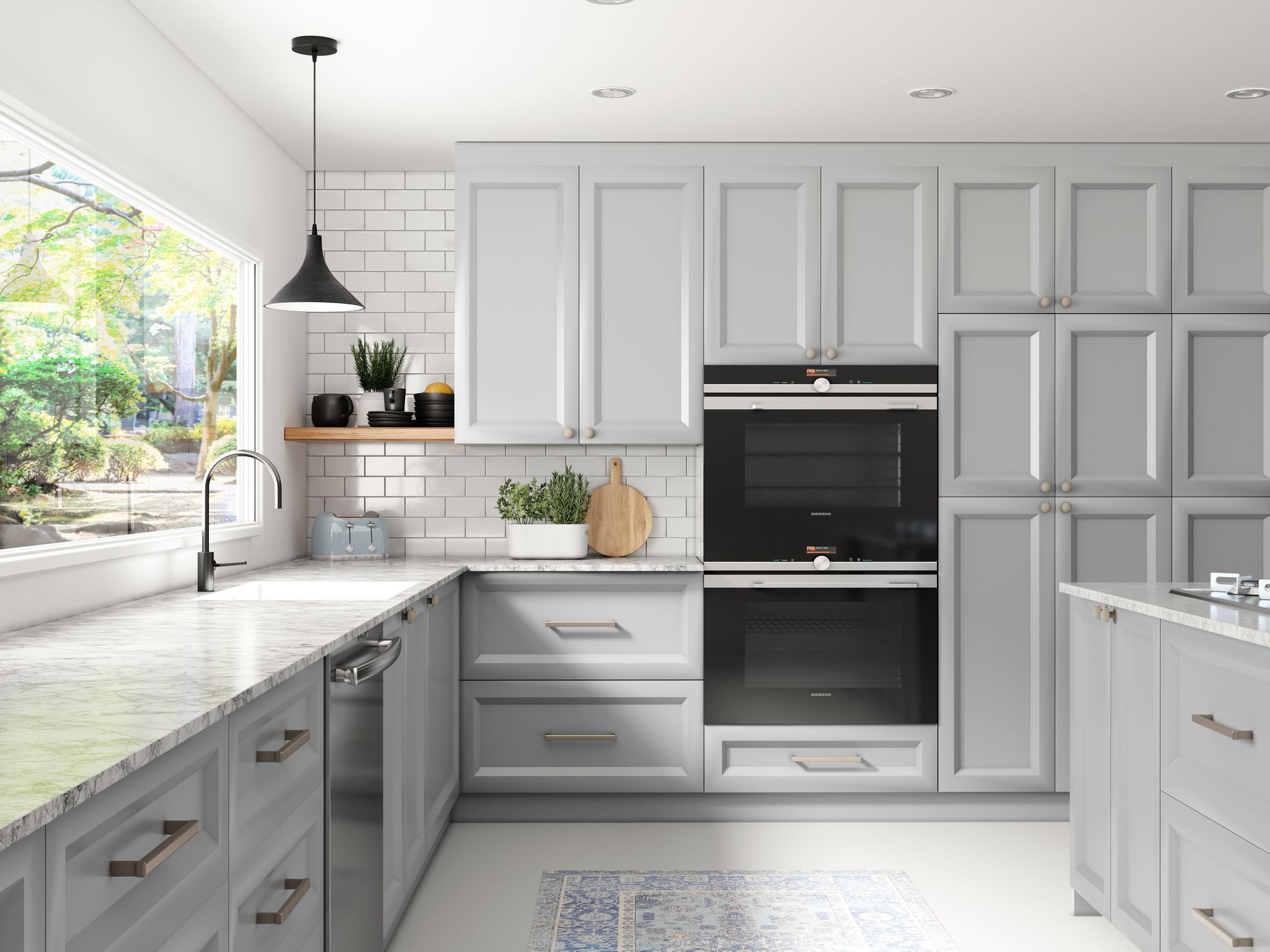
Cutler Group
Eddie Cutler jumped on the idea that one person's junk is another person's treasure. His treasure was wood cuts--purchasing surplus wood and finding customers who could make good use of it. Almost 50 years after its founding in 1973, Cutler Group has expanded from that idea into manufacturing and distributing kitchen, bath and other wood products to beautify homes.

Proto3000
Based in Vaughan, Proto3000’s design, additive manufacturing, and metrology technologies help customers solve complex engineering and manufacturing challenges, resulting in shorter cycle times, more flexible supply chains, faster prototyping and more efficient production.
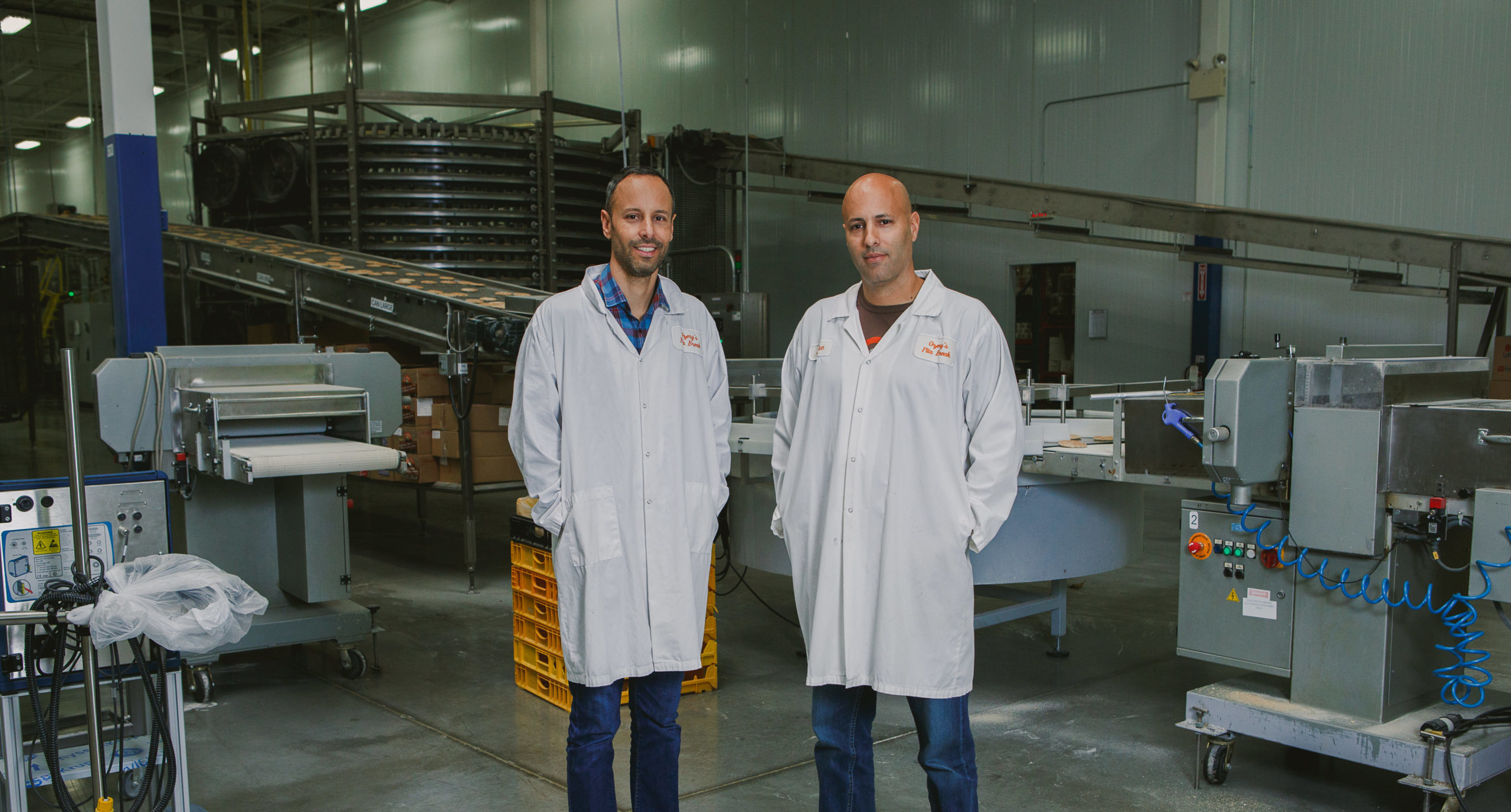
Ozery Family Bakery
Ozery Family Bakery is an innovative baked goods manufacturer based in Vaughan. The company grew from a 700 square foot sandwich shop into a 100,000 square foot state-of-the-art factory within 25 years through innovation, automation, and building an inclusive company culture.

Crystal Fountains
Crystal Fountains is a third generation, family-owned company that designs and builds internationally recognized water features attracting millions of visitors each year.
